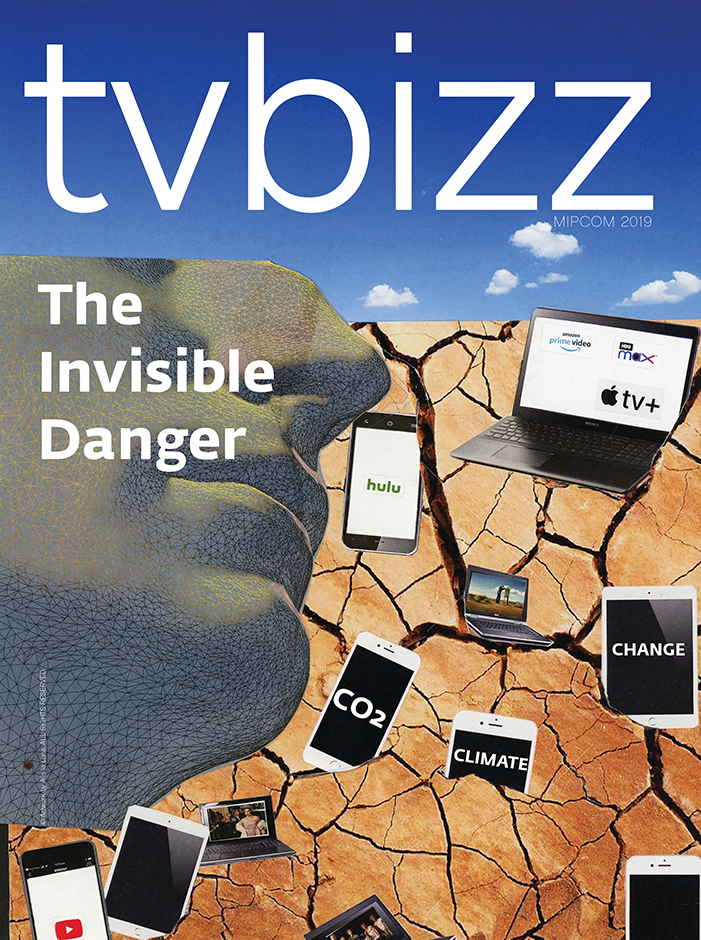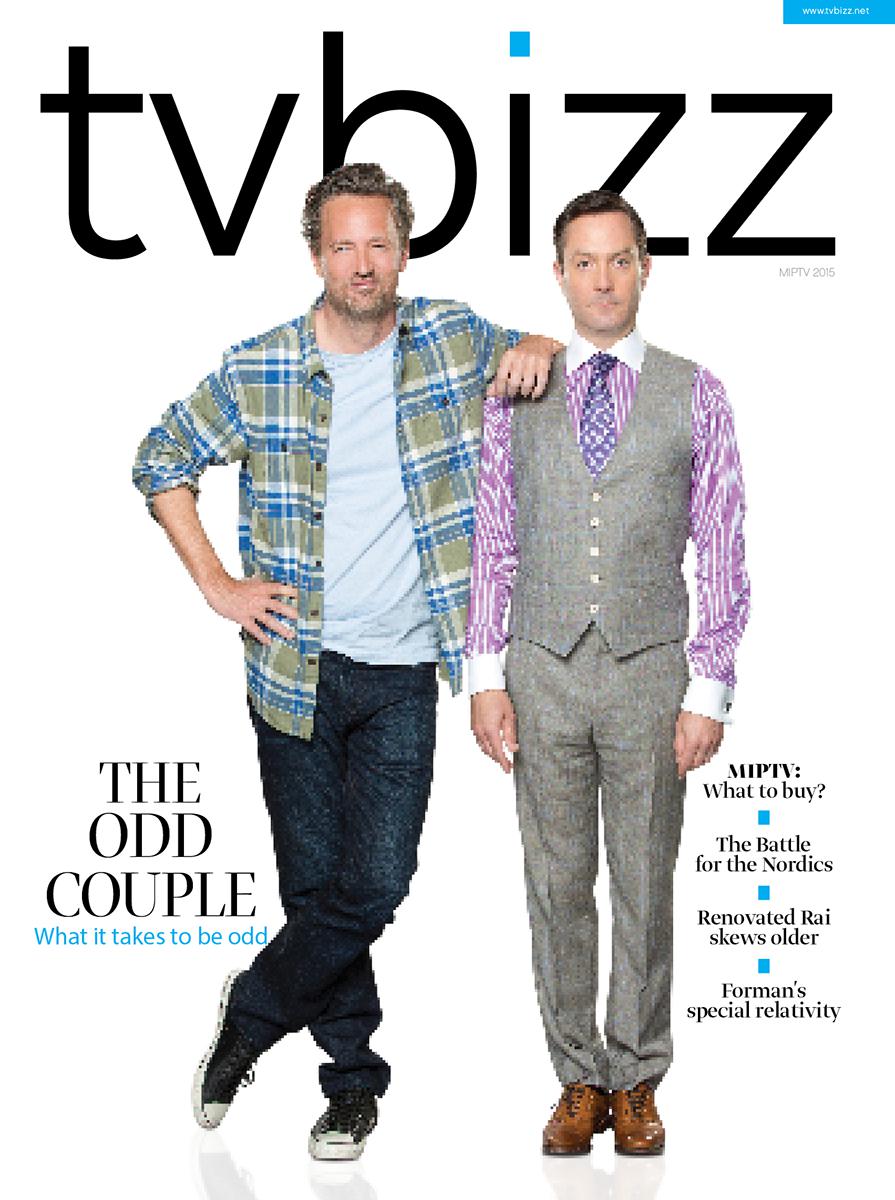Password-Sharing Crackdown Works for Netflix. Will It Work for Other Streamers?
The latest development in the ever-busy streaming world was the announcement of Warner Bros. Discovery that Max, its enhanced streaming service, will launch in the first European countries beginning May 21. “Max brings together HBO Max’s can’t-miss programming, Discovery’s engaging real-life entertainment and all the world-class action from Eurosport’s premium subscription service to create a complete viewing experience for the whole household with premier TV shows, fresh and iconic movies, unmissable sports, and flagship TV networks in select countries, in a single destination for the first time,” the company announced.
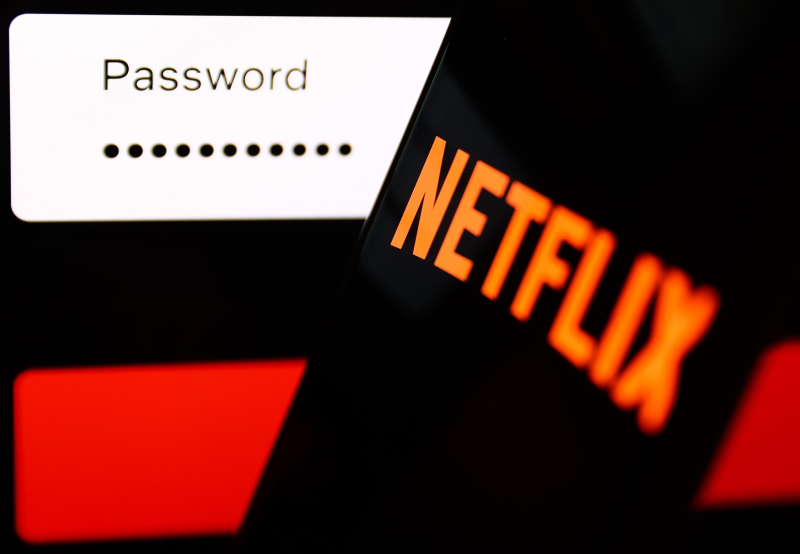
On May 21, Max will become available across the Nordics, Iberia, and Central and Eastern Europe. Launches will follow closely after in Poland, the Netherlands, France, and Belgium. France and Belgium are the first new countries where WBD has launched its streaming service in over two years. These launches mean Max will be available in 25 countries in Europe and 65 countries and territories worldwide after launching in the U.S. in May 2023, and launching in Latin America and the Caribbean earlier this year. Max will offer a choice of different plans, plus a Sports Add-On which may be added to any base plan. Full details about pricing will be announced in the coming weeks and will vary country by country.
Max is also the latest company to announce that it will be cracking down on accounts it suspects of password sharing and the original shows on Max are among the most sought out. HBO’s Game of Thrones, House of the Dragon, and The Last of Us have topped the most-pirated show lists over the year. Netflix was the first of the big streamers to end password-sharing last year. Disney followed suit by prohibiting password-sharing in its policies for Disney+, Hulu, and ESPN+.
Password sharing is one of the biggest challenges facing streamers – but it was largely ignored in the past. In fact, in the early days of the streaming boom, password sharing may have actually helped streamers grow in popularity if not revenue. However, as the space tightened and production and licensing costs increased, streamers became increasingly pressured to deliver revenue and profits, which means getting subscription fees from more people.
Most companies see password sjaring as a paying subscriber allowing individuals outside of their household access to their account. Streamers typically provide plans which allow for multiple devices within a household to access content on a single paid account. However, allowing others outside the paying subscribers’ household to do so is quickly becoming against the rules across the industry. Streaming services that have already introduced crackdowns typically send out emails warning users suspected of password sharing. Netflix has rolled out add-on plans which allow subscribers to pay extra to add individuals outside of their household to their account. Disney’s streaming services have yet to provide such an offering to customers but plan to launch such a feature later this year. During an earnings call earlier this year, Disney chief financial officer Hugh Johnston said Disney+ accounts “suspected of improper sharing” will see an option to sign up for their own subscription.
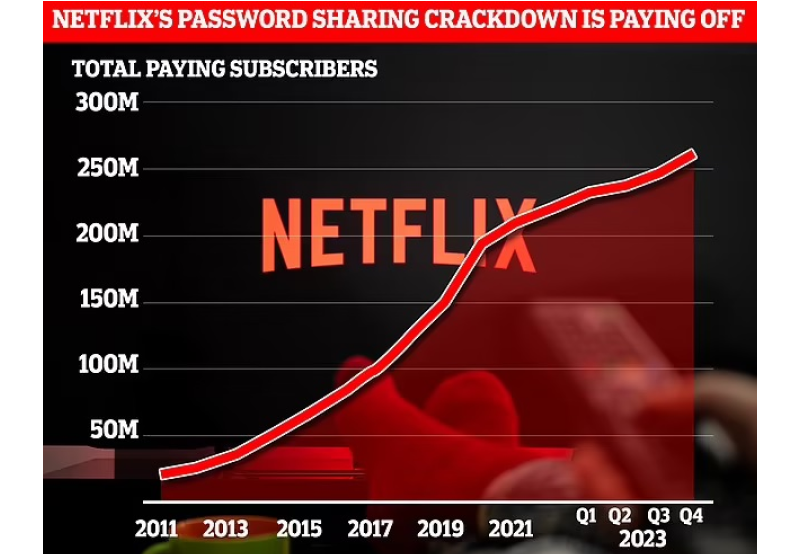
Earlier this year WBD announced that it will be cracking down on accounts it suspects of password sharing as well. The announcement came from Warner Bros. Discovery CEO JB Perrette while speaking at Morgan Stanley’s 2024 Technology, Media & Telecom Conference. Max will begin informing password-sharing subscribers of the company’s new policy enforcement later this year with the intent to fully roll out paid sharing in 2025. Regarding cracking down on password sharing, Perrette commented that “obviously Netflix has implemented [that] extremely successfully. We’re going to be doing that starting later this year and into ’25, which is another growth opportunity for us.”
Disney will also start letting account holders add people outside their household for an “additional fee” — but it didn’t say how much that will cost. “We want to reach as large an audience as possible with our outstanding content,” Disney chief financial officer Hugh Johnston said. “We’re looking forward to rolling out this new functionality to improve the overall customer experience and grow our subscriber base.”
This year, both Disney+ and Hulu have updated their terms of service to ban users from sharing their subscriptions with people outside their households. The new terms started applying to new subscribers on January 25th, but it’s coming for existing members on March 14th. Netflix already rolled out a similar version of paid sharing last year, costing subscribers an extra $7.99 per month to add a person located outside their home.
According to Max’s terms of use, most recently updated Feb. 27, Warner Bros. Discovery reserves the right to “modify access or disable features, including for security reasons, to limit the impact of account sharing outside of your household or where we have concluded in our discretion that there has been misuse of your Max Account. If a suspension or termination occurs, you must stop using the Platform.”
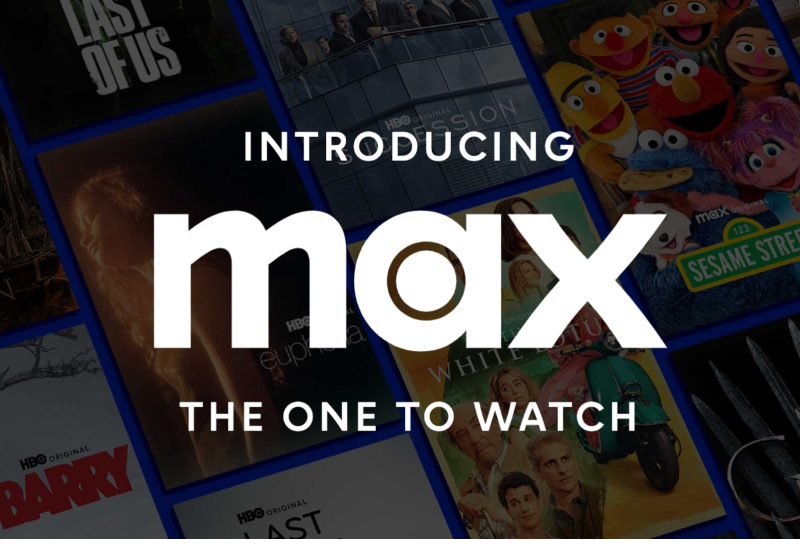
WBD’s move to monetize Max password sharing is part of its efforts to boost the financial performance of streaming. In 2022 Max’s streaming business sustained a loss of more than $2 billion, and it got a $103 million profit for its direct-to-consumer business in 2023. The company is targeting $1 billion in earnings before interest, taxes, depreciation and amortization by 2025, according to Perrette. “We said, we are moving from a world of subs at all cost, which is kind of the narrative that existed in the old media landscape, to a one of profitable growth as our key North Star,” the exec said at the Morgan Stanley conference.
The password-sharing crackdown is definitely paying off, at least for Netflix. The streamer added 29.5 million net new subscribers in 2023, up from an annual average of 21 million in 2020-22, boosted by its global implementation of “paid sharing,” a program that prompts users who are borrowing someone else’s account to sign up for their own plan or to have primary account holders add them as an “extra member.”
Under the new restrictions introduced in May 2023, users were asked to set a “primary location”, which Netflix will likely determine based on their device’s IP address. Once this primary location is set, people who don’t live there will have three options. Option 1: abandon Netflix; option 2: sign up and pay for their own private Netflix account; option 3: pay an additional fee and become an “extra member” to the existing account. This extra member feature does offer a few benefits. The main one is that the fee is cheaper than paying for a standalone Standard or Premium subscription – but it also comes with a few restrictions. It is only available if the primary account is subscribed to the Standard or Premium tier. Secondly, a Standard subscription can only have one extra member, while a Premium account can only have two extra members.
The latest Internet-Delivered TV Services report from Leichtman Research Group also points to Netflix’s efforts to limit password and account sharing appear to be helping. According to LRG’s survey of 2.546 households, U.S. password sharing is down to about 10% of users. That figure has been declining slowly from 16% in 2018 to 14% in 2022 and 15% in 2022. The latest data shows a large drop in sharing accounts, though it’s important to note the figures are based on users self-reporting password sharing. LRG also reports that 10% of DTC video services are shared outside an immediate household, compared to 12% in 2022, according to its survey data. 73% of all these types of service are reported as being used by only members of a single household.

Another research, this time from MTM in the UK, shows that Netflix’s password-sharing crackdown has resulted in a 10-percentage point increase in paying subscribers (from 60% to 70% of total Netflix users). MTM also found that despite the strong numbers, a majority (60%) of Netflix users surveyed said they were experiencing “content fatigue”. In an interview with The Media Leader at the Connected TV World Summit, Rob Collier, MTM’s head of strategy, said the data showed Netflix’s password-sharing crackdown had been a success. However, Collier is not convinced password-sharing crackdowns will work out as well for Netflix’s competitors. “I think it’s a tough one. Obviously, all of the operators would like to maximise their subscription revenue and this is one way,” he said. “But equally, Netflix did take quite a cautious approach to market and I’m sure internally it was quite progressive. You know, a bit of messaging, soft nudges in the UI and then slowly turning the screw on people who are sharing with lots of people.
“It’s a success for Netflix, so they’ve shown that it can be done. But at the same time, we see that Netflix has a really strong content proposition, is a really popular service, awareness is really high, it’s the biggest operator in the market. It’d be quite difficult for smaller operators to follow in those footsteps,” he added.
Max is also the latest company to announce that it will be cracking down on accounts it suspects of password sharing and the original shows on Max are among the most sought out. HBO’s Game of Thrones, House of the Dragon, and The Last of Us have topped the most-pirated show lists over the year. Netflix was the first of the big streamers to end password-sharing last year. Disney followed suit by prohibiting password-sharing in its policies for Disney+, Hulu, and ESPN+.
Password sharing is one of the biggest challenges facing streamers – but it was largely ignored in the past. In fact, in the early days of the streaming boom, password sharing may have actually helped streamers grow in popularity if not revenue. However, as the space tightened and production and licensing costs increased, streamers became increasingly pressured to deliver revenue and profits, which means getting subscription fees from more people.
Most companies see password sjaring as a paying subscriber allowing individuals outside of their household access to their account. Streamers typically provide plans which allow for multiple devices within a household to access content on a single paid account. However, allowing others outside the paying subscribers’ household to do so is quickly becoming against the rules across the industry. Streaming services that have already introduced crackdowns typically send out emails warning users suspected of password sharing. Netflix has rolled out add-on plans which allow subscribers to pay extra to add individuals outside of their household to their account. Disney’s streaming services have yet to provide such an offering to customers but plan to launch such a feature later this year. During an earnings call earlier this year, Disney chief financial officer Hugh Johnston said Disney+ accounts “suspected of improper sharing” will see an option to sign up for their own subscription.

Earlier this year WBD announced that it will be cracking down on accounts it suspects of password sharing as well. The announcement came from Warner Bros. Discovery CEO JB Perrette while speaking at Morgan Stanley’s 2024 Technology, Media & Telecom Conference. Max will begin informing password-sharing subscribers of the company’s new policy enforcement later this year with the intent to fully roll out paid sharing in 2025. Regarding cracking down on password sharing, Perrette commented that “obviously Netflix has implemented [that] extremely successfully. We’re going to be doing that starting later this year and into ’25, which is another growth opportunity for us.”
Disney will also start letting account holders add people outside their household for an “additional fee” — but it didn’t say how much that will cost. “We want to reach as large an audience as possible with our outstanding content,” Disney chief financial officer Hugh Johnston said. “We’re looking forward to rolling out this new functionality to improve the overall customer experience and grow our subscriber base.”
This year, both Disney+ and Hulu have updated their terms of service to ban users from sharing their subscriptions with people outside their households. The new terms started applying to new subscribers on January 25th, but it’s coming for existing members on March 14th. Netflix already rolled out a similar version of paid sharing last year, costing subscribers an extra $7.99 per month to add a person located outside their home.
According to Max’s terms of use, most recently updated Feb. 27, Warner Bros. Discovery reserves the right to “modify access or disable features, including for security reasons, to limit the impact of account sharing outside of your household or where we have concluded in our discretion that there has been misuse of your Max Account. If a suspension or termination occurs, you must stop using the Platform.”

WBD’s move to monetize Max password sharing is part of its efforts to boost the financial performance of streaming. In 2022 Max’s streaming business sustained a loss of more than $2 billion, and it got a $103 million profit for its direct-to-consumer business in 2023. The company is targeting $1 billion in earnings before interest, taxes, depreciation and amortization by 2025, according to Perrette. “We said, we are moving from a world of subs at all cost, which is kind of the narrative that existed in the old media landscape, to a one of profitable growth as our key North Star,” the exec said at the Morgan Stanley conference.
The password-sharing crackdown is definitely paying off, at least for Netflix. The streamer added 29.5 million net new subscribers in 2023, up from an annual average of 21 million in 2020-22, boosted by its global implementation of “paid sharing,” a program that prompts users who are borrowing someone else’s account to sign up for their own plan or to have primary account holders add them as an “extra member.”
Under the new restrictions introduced in May 2023, users were asked to set a “primary location”, which Netflix will likely determine based on their device’s IP address. Once this primary location is set, people who don’t live there will have three options. Option 1: abandon Netflix; option 2: sign up and pay for their own private Netflix account; option 3: pay an additional fee and become an “extra member” to the existing account. This extra member feature does offer a few benefits. The main one is that the fee is cheaper than paying for a standalone Standard or Premium subscription – but it also comes with a few restrictions. It is only available if the primary account is subscribed to the Standard or Premium tier. Secondly, a Standard subscription can only have one extra member, while a Premium account can only have two extra members.
The latest Internet-Delivered TV Services report from Leichtman Research Group also points to Netflix’s efforts to limit password and account sharing appear to be helping. According to LRG’s survey of 2.546 households, U.S. password sharing is down to about 10% of users. That figure has been declining slowly from 16% in 2018 to 14% in 2022 and 15% in 2022. The latest data shows a large drop in sharing accounts, though it’s important to note the figures are based on users self-reporting password sharing. LRG also reports that 10% of DTC video services are shared outside an immediate household, compared to 12% in 2022, according to its survey data. 73% of all these types of service are reported as being used by only members of a single household.

Another research, this time from MTM in the UK, shows that Netflix’s password-sharing crackdown has resulted in a 10-percentage point increase in paying subscribers (from 60% to 70% of total Netflix users). MTM also found that despite the strong numbers, a majority (60%) of Netflix users surveyed said they were experiencing “content fatigue”. In an interview with The Media Leader at the Connected TV World Summit, Rob Collier, MTM’s head of strategy, said the data showed Netflix’s password-sharing crackdown had been a success. However, Collier is not convinced password-sharing crackdowns will work out as well for Netflix’s competitors. “I think it’s a tough one. Obviously, all of the operators would like to maximise their subscription revenue and this is one way,” he said. “But equally, Netflix did take quite a cautious approach to market and I’m sure internally it was quite progressive. You know, a bit of messaging, soft nudges in the UI and then slowly turning the screw on people who are sharing with lots of people.
“It’s a success for Netflix, so they’ve shown that it can be done. But at the same time, we see that Netflix has a really strong content proposition, is a really popular service, awareness is really high, it’s the biggest operator in the market. It’d be quite difficult for smaller operators to follow in those footsteps,” he added.














